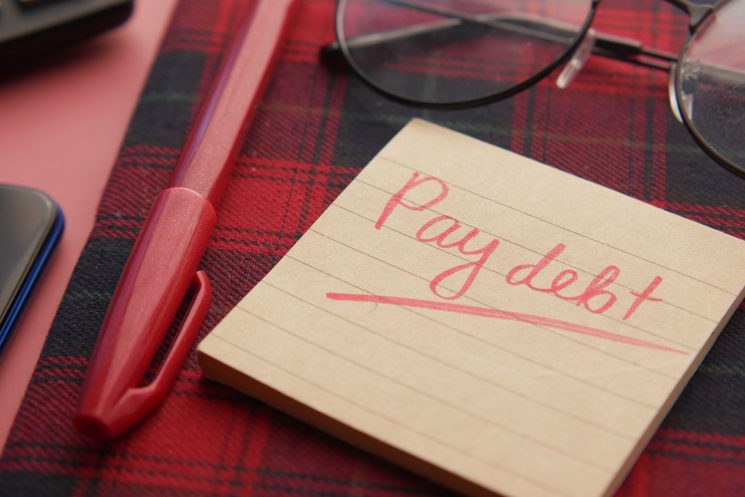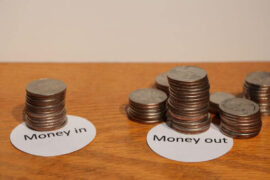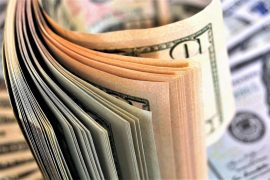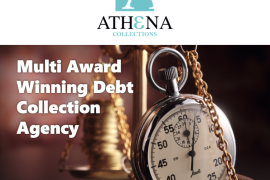- All debts aren’t created equal
There are debts that are going to have more dire consequences than others if you fail to pay. The type of debt you are carrying is going to determine the best option for you and the strategy you need to consider.
Mortgage debt
There are state programs such as Homeowners Assistance Fund programs that can give relief to homeowners who are having a hard time keeping up with their mortgage payments and are at risk of foreclosure. Most lenders have loss mitigation options, like forbearance agreements, loan modifications, and repayment plans that help those having a hard time paying.
Medical debt
When you have medical debt, there are some medical providers that will be ready to work with you if you cannot pay.
Student Loan debt
For those with student loan debt, it might be a good idea to look at any government programs that can provide relief, like cancellation options.
- You need to budget to get out of debt
If you have some money left after paying all your basic expenses, you can get yourself out of debt problems. This process tends to be slow and arduous, but hard work and diligence are going to pay off. You will get out. Below are some options you need to think about.
You need to make a budget that is going to include your income and expenses. Look for ways of reducing your spending and costs. If possible, try to find ways of increasing your income. Go through your budget and see what you can cut down on. Your budget is going to be your guideline and you can know how much you can spend every month on paying your debt.
It is important to prioritize expenses and debt, list down those that are essential – like mortgages, child support, and utility bills – and the less important ones like loans from friends and family or department store charge cards.
- Pay extra attention to secured loans
It is important to focus more on secured debts over unsecured loans like those from My Quick Loan. If you don’t want to face foreclosure after failing to pay your mortgage, then you need to make mortgage payments the top priority. If you don’t pay the department store charge card bill to make car payments, then it might be a good idea, especially if you need the car to go to work.
- It is important to communicate with creditors
Whatever happens, the most important thing to keep in mind is never sweeping the bills under the bed. Even if you don’t have any income, it is a good idea to talk to the creditor and let them know what is happening. There are some who will be ready to work with you. There are those who will come up with a payment plan, which lets you skip a couple of payments and add them to the loan term.
This advice doesn’t apply to those planning to file bankruptcy or you are “judgement “proof” or if you don’t plan on paying back the debt. Being judgement proof is when you don’t have assets or income that creditors can seize if they sue you and the judgement is against you. There is no point to communicate with the creditor because you are not going to work with them in such situations.
- Be careful with credit counselling although it can help
If you want to get budget counselling or money-management education, a nonprofit credit counselling organization can help you. Such organizations can help in suggesting options to get out of debt, providing housing counselling, and referring you to other agencies that can help you. There are some that can reach out to the creditors to come up with a payment plan or create a debt management plan.
Before going to these agencies, you need to have a look at their credentials. Not all of them are legitimate. There are those that take advantage and charge excessive fees, provide bad advice, or doesn’t perform promised services. Visit The National Foundation for Credit Counselling website so you can find a good agency.
- Credit Repair Clinics aren’t worth it
You should avoid credit repair clinics if you want to clean up your credit file. They usually claim they are going to help in fixing your credit, qualifying for a loan, and getting you a credit card. You don’t have to pay for such services; most of the time they do things you can easily do on your own. There are those using illegal tactics that can make things worse for you.
- Bankruptcy can be an option
This is an affordable and easy court remedy that lets you get rid of your debt and start over and not pay anything back. Bankruptcies can be described as “reorganization” (Chapter 13) or “liquidation” (Chapter 7).
The Chapter 7 bankruptcy involves asking the court to wipe out the debts owed. You need to keep in mind that not all debts are going to be discharged, and not everyone qualifies for Chapter 7. Chapter 13 involves filing a plan with the court that details how you plan to pay back your creditors. There are debts you will need to pay back in full; there are those that you can pay a small portion or not at all, it depends on what you can afford. If you want to pay back all or some of the debt, Chapter 13 can be a better option compared to debt management plans.





